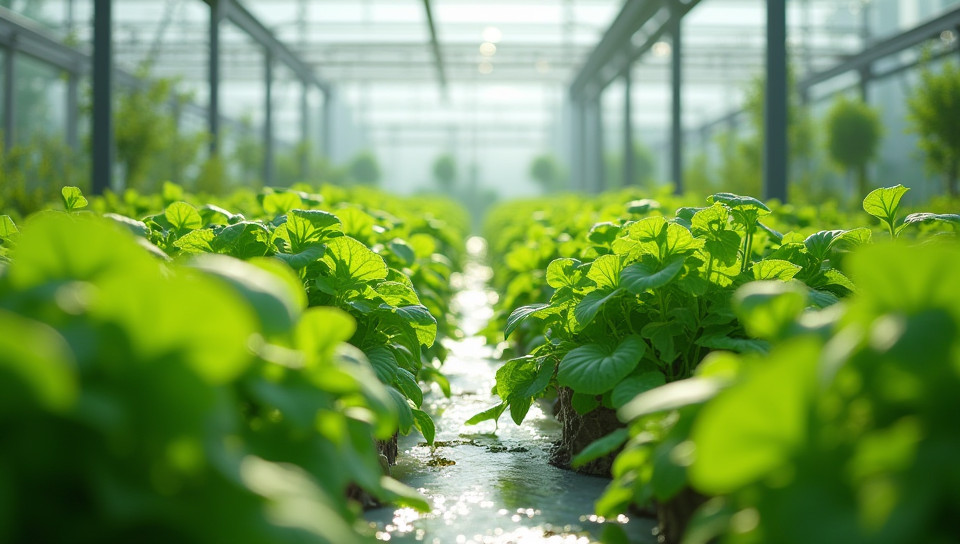Hydroponics uses less water than traditional farming methods 74%

The Water-Saving Revolution in Farming: How Hydroponics is Changing the Game
As the world grapples with the challenges of climate change, water scarcity, and sustainable food production, innovative farming methods are emerging as a beacon of hope. One such approach that's gaining traction is hydroponics, a method of growing plants without soil. In this article, we'll delve into the benefits of hydroponics, particularly its ability to use less water than traditional farming methods.
What is Hydroponics?
Hydroponics is a soilless cultivation technique where plants are grown in a nutrient-rich solution rather than soil. This method allows for precise control over the nutrients and water levels, ensuring optimal growth conditions for crops. By using hydroponics, farmers can grow a wide range of crops, from leafy greens to fruits and vegetables.
Water Conservation: The Hydroponic Advantage
Traditional farming methods often rely on intensive irrigation systems that can waste significant amounts of water due to evaporation, runoff, and percolation. In contrast, hydroponics uses a closed-loop system where water is recirculated and reused, minimizing waste. According to the United States Environmental Protection Agency (EPA), hydroponic farms use up to 90% less water than traditional farming methods.
- Some of the benefits of hydroponics in terms of water conservation include:
- Reduced evaporation: Hydroponics eliminates the need for irrigation canals and reservoirs, reducing water loss due to evaporation.
- Minimal runoff: By controlling the nutrient solution's pH levels, hydroponic systems prevent excess nutrients from entering waterways, minimizing the risk of contamination and runoff.
- Efficient water use: Hydroponics allows farmers to precisely control the amount of water used by plants, eliminating waste and reducing consumption.
The Environmental Impact
The environmental benefits of hydroponics extend beyond water conservation. By growing crops in a controlled environment, hydroponic farms can reduce the need for pesticides, fertilizers, and other chemicals that harm the environment. Additionally, hydroponic systems can be designed to capture and utilize CO2, reducing greenhouse gas emissions.
Conclusion
As the world continues to grapple with the challenges of sustainable food production, hydroponics offers a promising solution. By using less water than traditional farming methods, hydroponics can help alleviate pressure on global water resources while also promoting environmental sustainability. As the demand for innovative and sustainable farming practices grows, it's likely that hydroponics will become an increasingly important player in shaping the future of agriculture.
- Created by: Ezekiel Domingo
- Created at: Feb. 1, 2025, 3:33 p.m.
- ID: 19876






